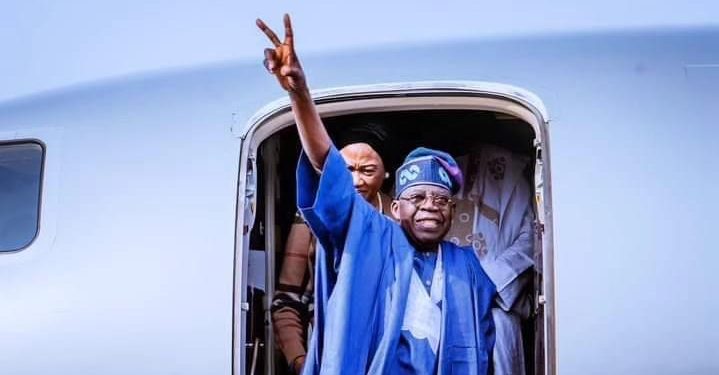Senator Enyinnaya Abaribe has disclosed that the controversial presidential jet purchase made by the Tinubu administration never received National Assembly approval. The senior lawmaker’s admission during a Monday appearance on Channels Television’s “Politics Today” has cast a shadow over the August acquisition of an Airbus A330 for presidential use.
The revelation comes amid ongoing public debate about the appropriateness of such a purchase during a period of severe economic hardship for many Nigerians. Senator Abaribe’s statement is particularly significant as it challenges the constitutional framework requiring legislative approval for major government expenditures.
I am in the national assembly, but I can tell you for a fact that nobody, quote me, nobody brought anything to the national assembly to say please approve this for purchase of a new plane,” Abaribe stated emphatically, adding that he had never seen any documentation related to the purchase despite his long-standing presence in the legislature.
The controversy surrounding the jet purchase has evolved since its unveiling in August, with the Presidency attempting to manage public reaction through various explanations. Presidential spokesperson Bayo Onanuga’s characterization of the aircraft as “refurbished” rather than new appears to have done little to quell public concerns about the expenditure’s timing and necessity.
Abaribe’s disclosure adds a new dimension to the controversy, shifting focus from the purchase itself to questions about procedural compliance and legislative oversight. The senator expressed concern about the implications of this bypass of legislative authority, suggesting it represents a significant failure in the constitutional system of checks and balances.
The situation has broader implications for the relationship between Nigeria’s executive and legislative branches. Abaribe acknowledged public perception of the National Assembly as a rubber stamp institution, offering a candid assessment of why legislators might appear compliant with executive actions. He suggested that lawmakers, having fought numerous battles with limited success, have opted for a more cooperative approach with the executive branch, though this strategy appears to have backfired in terms of public trust.
This revelation comes at a particularly sensitive time, as many Nigerians struggle with the economic impacts of fuel subsidy removal and currency devaluation. The purchase of a presidential jet, regardless of its technical classification as new or refurbished, has become symbolic of what critics see as misplaced priorities in government spending.
The absence of legislative approval for such a significant purchase raises serious questions about financial accountability in government. Constitutional provisions requiring legislative oversight of major government expenditures exist specifically to ensure transparency and proper allocation of national resources. The apparent circumvention of these provisions in the jet purchase case suggests a concerning precedent.
The controversy has also highlighted the complexities of the National Assembly’s oversight role. Abaribe’s admission that legislators have sometimes chosen cooperation over confrontation with the executive branch provides insight into the practical challenges of maintaining effective checks and balances in Nigeria’s political system.
The senator’s revelations have implications beyond the immediate controversy. They speak to broader issues of governance, transparency, and the effectiveness of constitutional safeguards in Nigeria’s democratic system. The fact that such a significant purchase could proceed without legislative scrutiny raises questions about other potential bypasses of constitutional processes.
The timing of Abaribe’s disclosure is particularly significant as it comes when the legislature’s role in overseeing executive actions is under increased scrutiny. The public reaction to the jet purchase, combined with ongoing economic challenges, has created a perfect storm of criticism directed at both the executive and legislative branches.
As this story continues to develop, it may prompt broader discussions about the need for stronger enforcement of constitutional provisions regarding executive spending and legislative oversight. The incident could serve as a catalyst for reforms in how major government purchases are approved and documented.
The controversy also highlights the delicate balance between executive efficiency and legislative oversight in Nigeria’s democratic system. While the executive branch may sometimes need to act quickly, the bypass of legislative approval processes risks undermining the fundamental principles of democratic governance and accountability.
As Nigeria continues to navigate its democratic journey, incidents like the presidential jet purchase and its approval process serve as important test cases for the strength of its institutions and the effectiveness of its constitutional checks and balances. The outcome of this controversy may well influence future interactions between the executive and legislative branches, particularly regarding major government expenditures.



